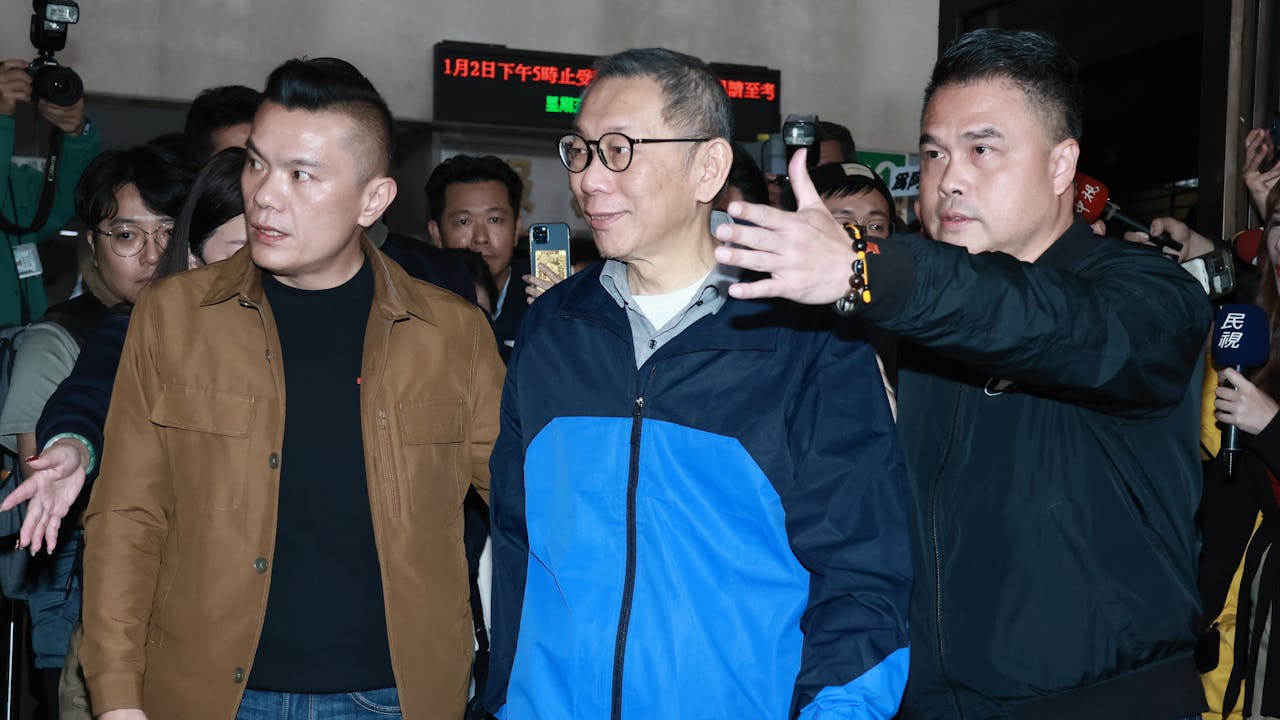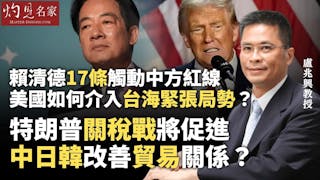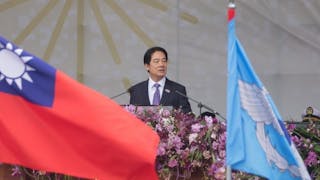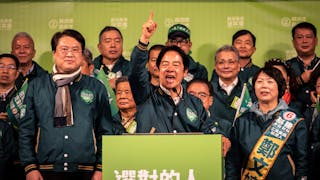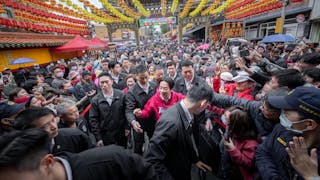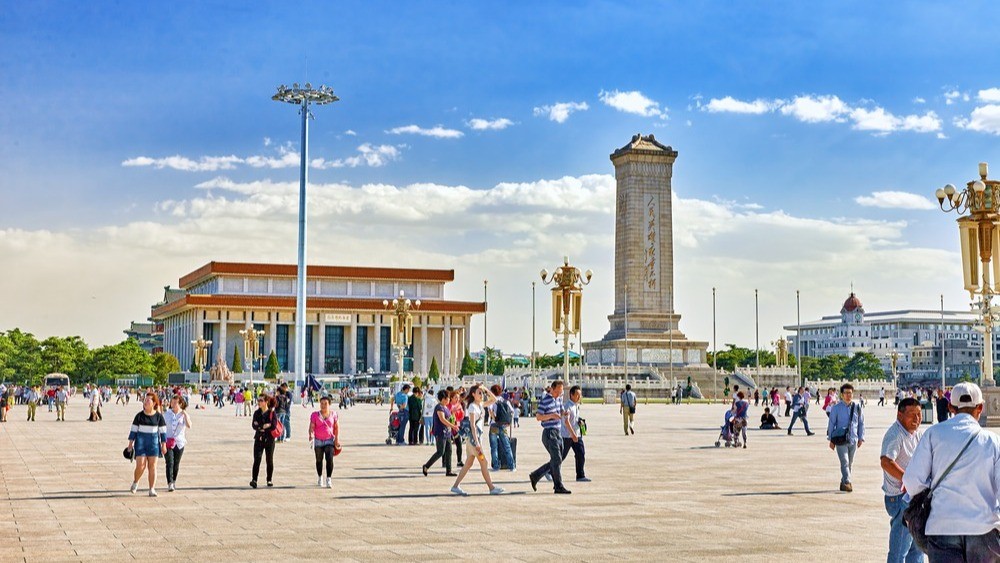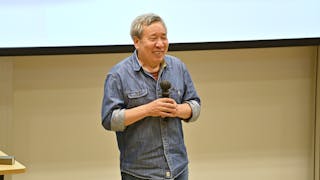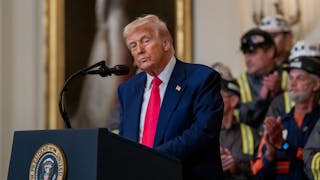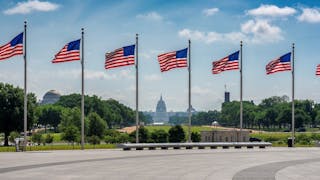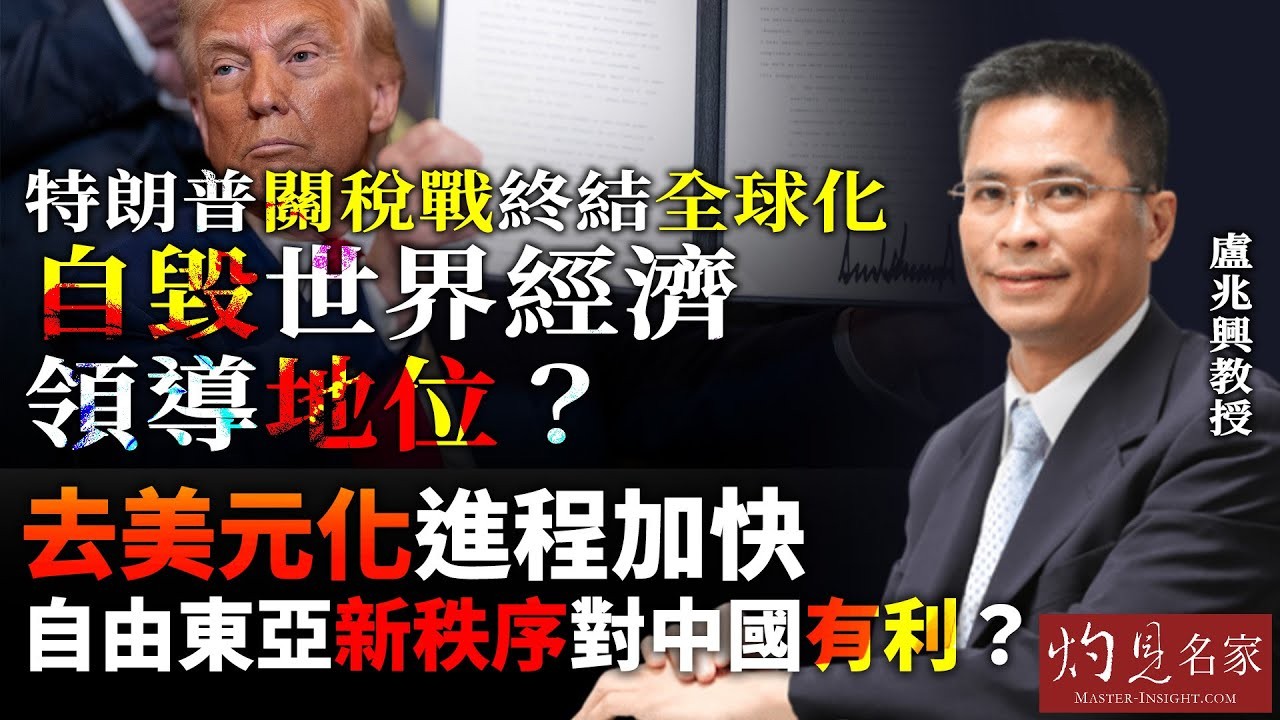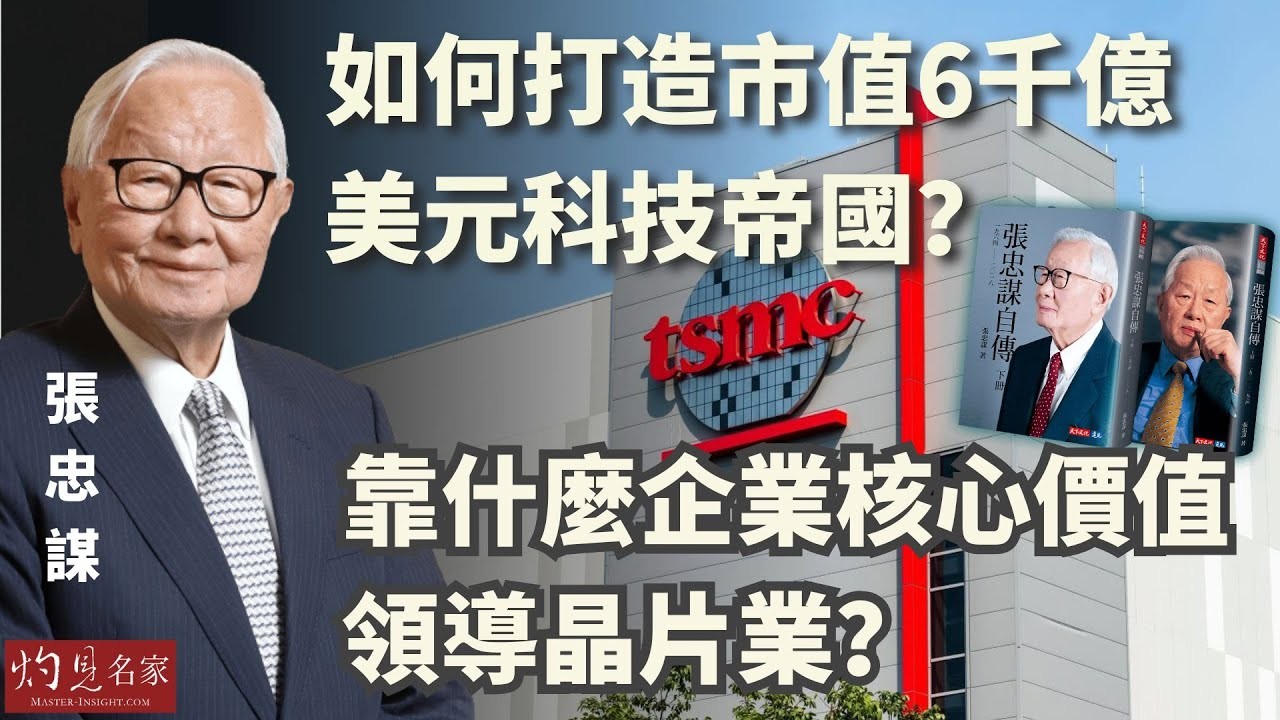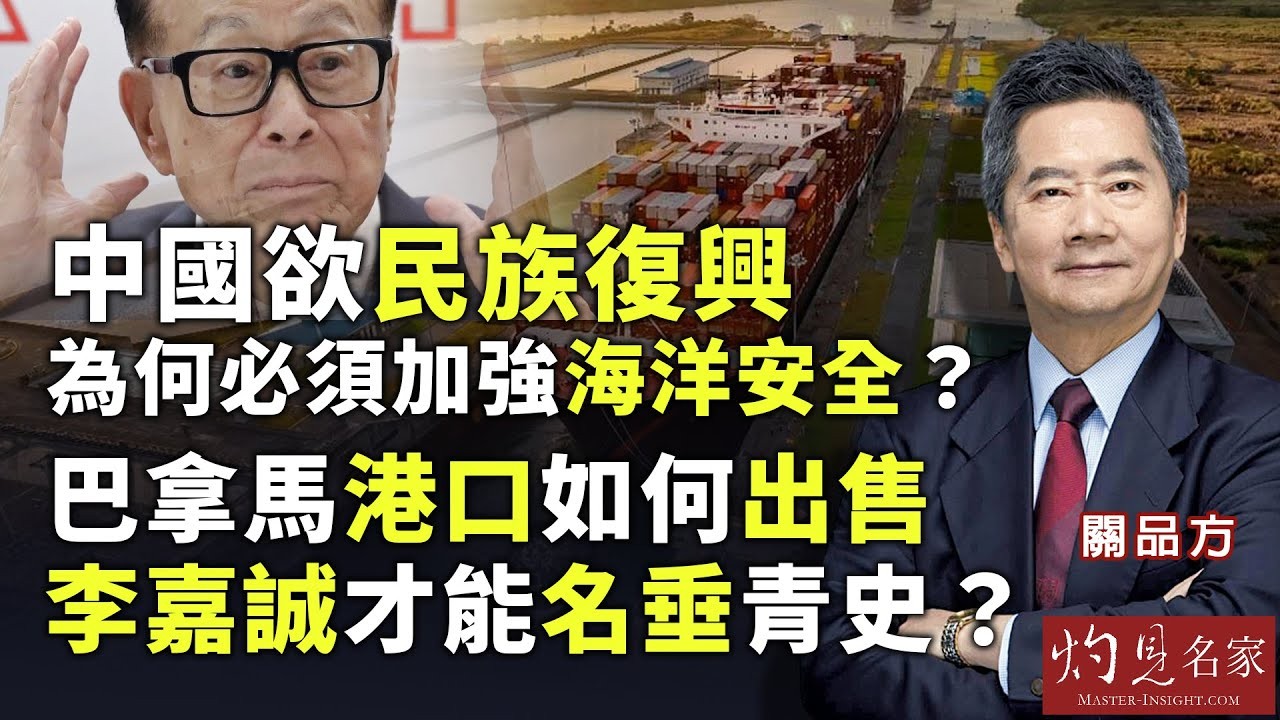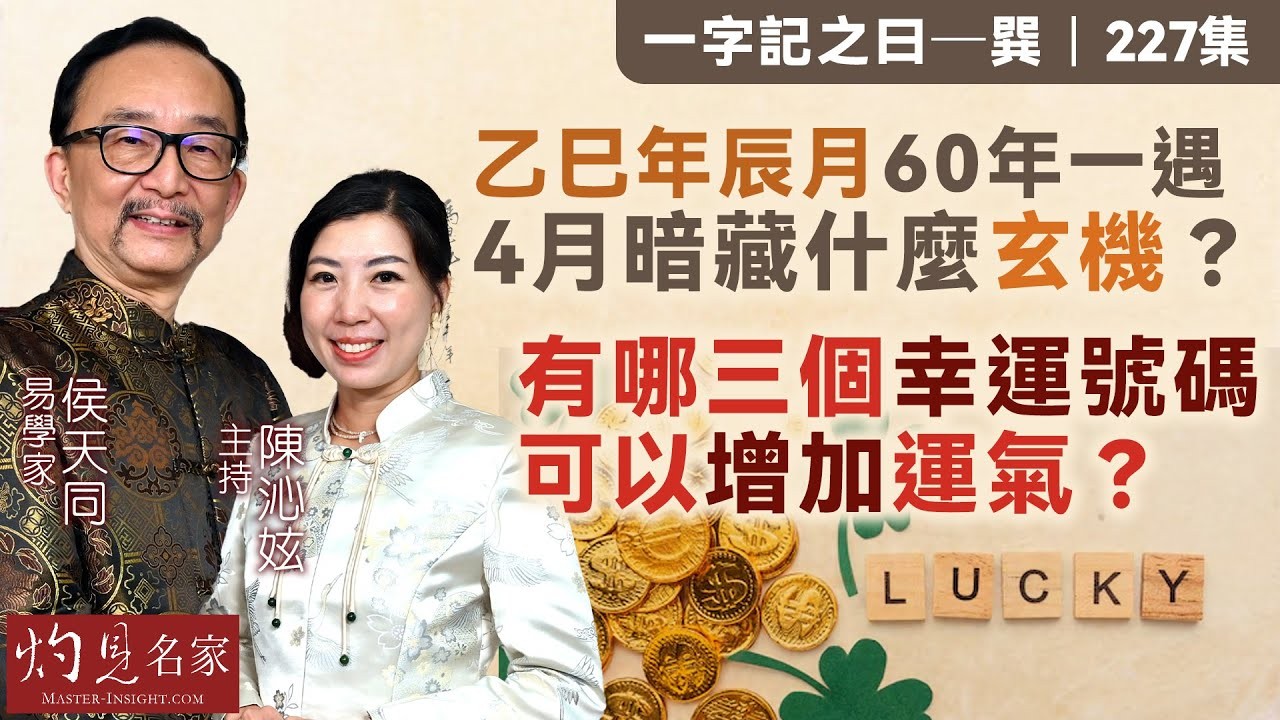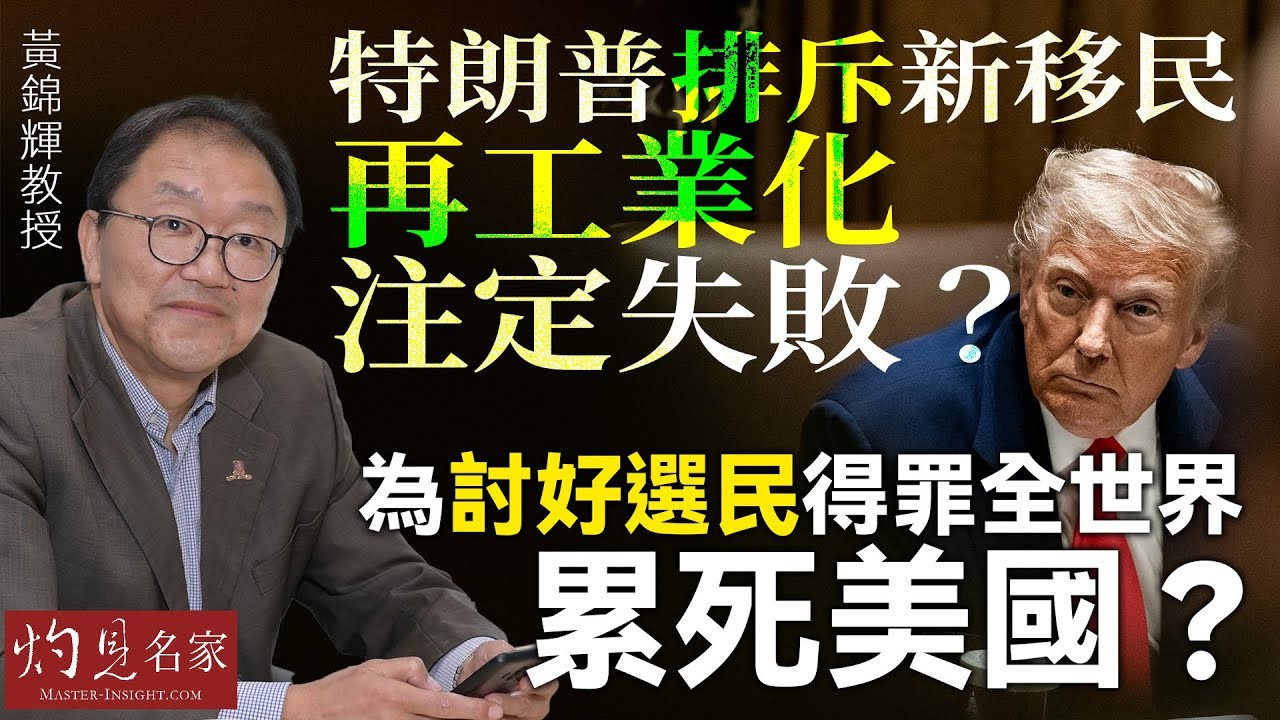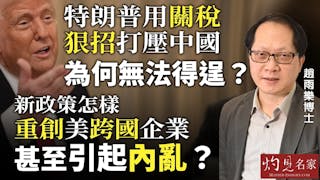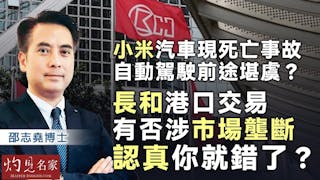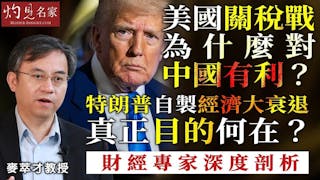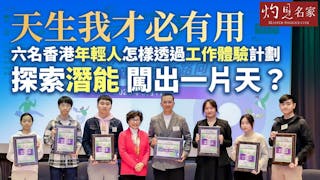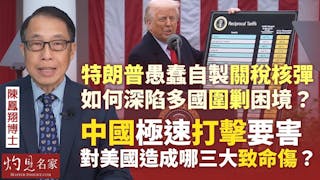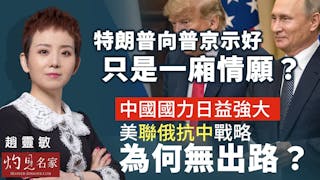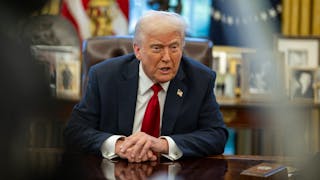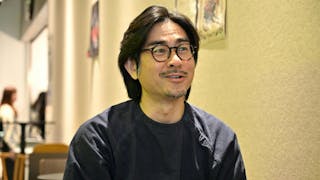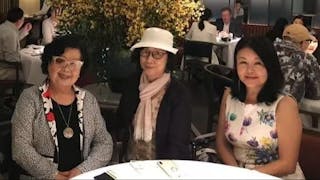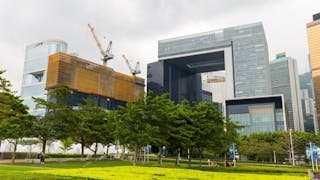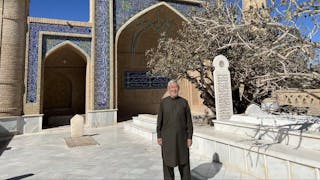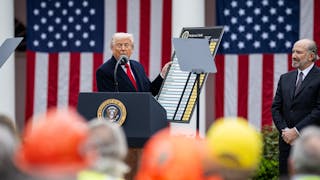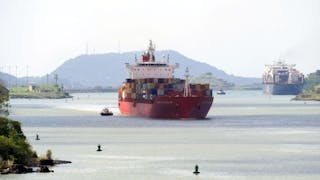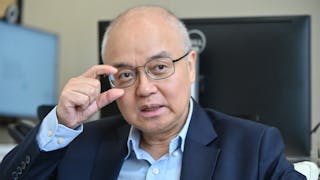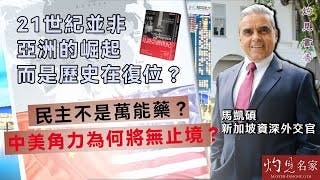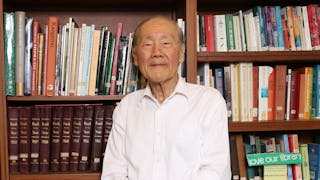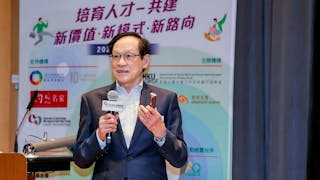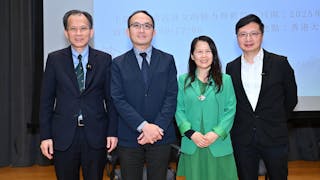2025年1月1日,台灣民眾黨主席柯文哲辭職,任命立委黃國昌為代主席。柯在擔任台北市長期間捲入與京華城重建計劃相關的涉嫌貪腐案。在柯的領導下,民眾黨從2019年成立到2024年,他的政治生涯因土地重建事件突然陷入危機。
柯原本是獨立候選人,憑藉高人氣和個人魅力贏得2014年台北市長選舉。在踏上政壇前,柯曾是一位著名的醫生。事後看來,他亮麗的政治生涯持續了十年,在台灣政壇一路扶搖直上,又突然隕落。
鑑於事件發生後,當地民調已經顯示台灣人對民眾黨的支持率有所下降,要爭取像2022年直轄市長及縣市長選舉那樣保住4.65%的得票率和14個議員席位,將是一場艱苦的戰鬥。
2025年1月2日台灣高等法院撤銷柯先前的保釋決定後,台北地方法院繼續拘留柯,1月3日,民眾黨號召其支持者上街抗議。民眾黨新任主席黃國昌呼籲黨員和支持者於1月10日在台北自由廣場聚會,呼籲釋放柯,並呼籲「獨立」司法程序的必要。顯然,民眾黨成員和支持者認為法院的判決是「出於政治動機」,黃國昌批評民進黨實行「綠色威權」。
內政部要求解散統促黨
不過,台灣政治紛爭未有平息跡象。2025年1月2日,台灣內政部要求憲法法庭判決解散台灣中華統一促進黨(CUPP),該黨黨員超過3萬人,成為台灣首個因危害當地安全遭聲請解散的政黨。據內政部稱,共有145名CUPP成員參與非法活動。該黨成立於2005年,主張與中國大陸統一,並以一國兩制來回應台灣未來的政治訴求。
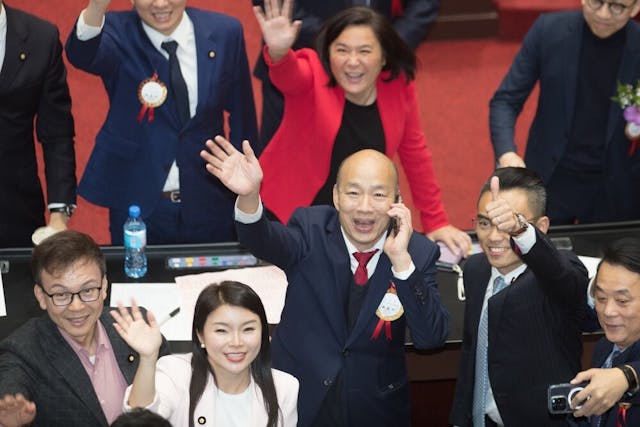
政治鬥爭另一個焦點是民進黨立委1月3日提議改選台灣立法院議長,國民黨院長韓國瑜被指拖延向台灣領導人賴清德提交兩項法案的公告,引發執政黨的不滿。民進黨團主張援引《立法委員互選院長副院長辦法》第8條「院長、副院長經全體立法委員三分之一以上人數提議,出席委員三分之二以上人數通過,得予以改選…⋯」,企圖推動改選院長的程序。此外,2024年12月20日立法院經過激烈衝突後,三讀通過《公職人員選舉罷免法》、《財政收支劃分法》、憲法訴訟法》等三法的修正案。
儘管三項法案同日通過,憲法程序法案於12月24日送交賴清德頒布,但民進黨立委認為,韓國瑜不應允許國民黨委員會召集人延後向總統和行政院提交法案公告,他們認為此舉違反了憲法第72條。
台灣內部黨派之爭波及兩岸關係。12月16日,上海市政府代表團抵達台北出席《2024上海台北城市論壇》時,台方代表為國民黨台北市市長蔣萬安。蔣呼籲緩和台海緊張局勢,而上海市副市長華源強調,大陸和台灣都是一家人,應該「愈走愈近,愈走愈親」。台灣陸委會表示,儘管兩岸關係仍然緊張,但台灣政府仍表現出善意,允許論壇舉行。
傳多達10萬台人取得大陸身份證
有趣的是,賴清德一方面指責大陸方面為兩岸交往設置障礙,另一方面又具體建議兩岸旅遊當局有必要在談判桌上進行對話。
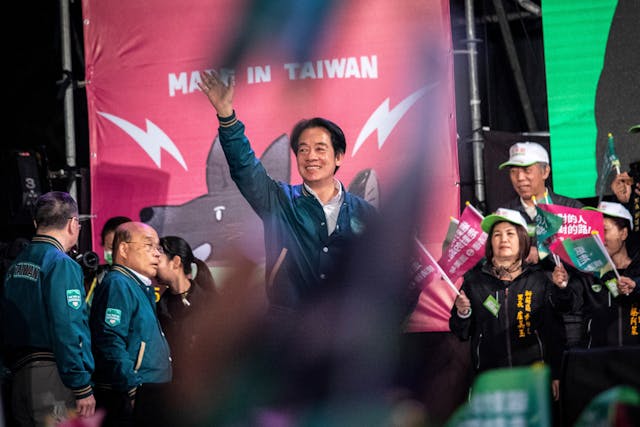
不過,賴表示,台灣民眾申請中國身份證並不划算,因為根據台灣法律,此舉將導致其被取消台灣公民身份。近日一名台灣網紅「八烔」聲稱,已有多達10萬台灣人獲得了大陸身份證。台灣一些年輕網紅亦嚴厲批評大陸對包括青少年在內的台灣民眾進行統戰。
馬英九認為,兩岸青年交流對於增進青年之間的相互了解、減少兩岸緊張關係是必要的。然而,一些具有強烈本土認同的台灣人士則認為,台灣人與大陸的任何互動都不利於社會。
對兩岸交流持抵觸態度持續存在
無論如何,台灣當地對兩岸接觸、互動和交流的抵制持續存在,包括年輕人在內的一些人反對這種接觸,並認為即使在法律上不一定有爭議,這種政治交流是不受歡迎的。但這種抵觸態度,絕不利於兩岸更密切的接觸、更好的大陸與台灣關係。
總而言之,台灣現在深陷黨派間的政治鬥爭,但同時執政的民進黨似乎容忍國民黨扮演中間人的角色,並探討台灣未來的任何建設性解決方案。
短期來看,預計海峽兩岸的學生和遊客將成為主要參與者,理想情況下應該允許他們以更具建設性和積極的方式訪問兩岸。然而,雙方之間並沒有進行半官方對話來加強學生交流和旅遊互訪,而這些領域正在等待真正的政治突破。
Political struggles in Taiwan and implications for Cross-Strait relations
Fierce internal struggles have recently enmeshed Taiwan, with significant implications for cross-strait relations.
On January 1, 2025, the chairman of the Taiwan People’s Party (TPP), Ko Wen-je, resigned after appointing legislator Huang Kuo-chang as an acting chairman. During his tenure as a Taipei mayor, Ko was embroiled in an alleged corruption case related to the Core Pacific City redevelopment project. Under Ko’s party leadership, the TPP performed quite well from 2019, when it was founded, to 2024, when his political career was suddenly plunged into a crisis because of the land redevelopment saga.
Ko was originally an independent candidate winning the 2014 Taipei mayoral election due to his high popularity and personal charisma. Before he decided to participate in politics, Ko had been a famous medical doctor. With the benefit of hindsight, his glamorous political career lasted for a decade, characterised by his impressive rise and yet sudden fall in Taiwan’s political history.
Supporters of Ko, especially those from TPP, argued that he has become a “victim” of partisan struggles. Regardless of whether he may be a “victim” to partisan struggles, the TPP’s popularity will be tested severely in the upcoming local municipal and county elections. Given the fact that opinion polls have already shown a decline in voters’ support of the TPP, its chance of maintaining 4.65 percent of the popular vote and 14 councillors’ seats, as with the situation in the 2022 county elections, will be an uphill battle unless voters will perhaps become sympathetic with Ko’s political fate and remain supportive of the new chairman Huang Kuo-chang.
On January 3, 2025, the TPP called on its supporters to protest the decision of the Taipei District Court to keep Ko Wen-je in detention, after the High Court on January 2 revoked its earlier bail decision. TPP’s new chairman Huang Kuo-chang appealed to party members and supporters to meet at the Taipei Freedom Square on January 10 to call for the release of Ko and for the necessity of an “independent” judicial process. Clearly, TPP members and supporters see the court decision as “politically motivated,” and Huang criticised the DPP for implementing “green authoritarianism”.
On January 2, 2025, the Taiwan Ministry of Interior said that it would request that the constitutional court consider the dissolution of the China Unification Promotion Party (CUPP), a move that will mark an attempt by the Taiwan authorities to try disbanding a political party. The government added that the 30,000-member CUPP participated in “criminal activities,” threatened “national security,” and “violated” the law. According to the Ministry of Interior, 145 members of the CUPP were involved in illegal activities. The CUPP was formed in 2005, and it advocates reunification with mainland China and the adoption of “one country, two systems” to deal with Taiwan’s political future. Taiwan news reports reveal that three CUPP members visited the mainland, met with officials from the mainland united front, and upon their return, the Taiwan authorities prosecuted them for allegedly violating the Taiwan national security law. Recently, a member of the CUPP Central Committee was also prosecuted for violating the “anti-infiltration law” because he allegedly received mainland subsidies in an election campaign.
If politics refer to who gets what, when, and how, then the Core Pacific City scandal that unfortunately involved Ko Wen-je of the TPP and the move against the CUPP are legal issues that seem to be, according to local critics, shrouded with hidden political struggle against the enemies of the ruling Democratic Progressive Party (DPP).
Another prominent political struggle in Taiwan involves a proposal by DPP legislators on January 3 to re-elect a new speaker of the Taiwan Legislative Assembly, whose speaker Han Kuo-yu of the KMT was accused of delaying the submission of two bills to Taiwan president William Lai. The DPP legislators invoked Article 8 of the Regulations on the Election of Speaker and Deputy Speaker by Legislators, saying that if more than one-third of the lawmakers propose a re-election and more than two-thirds of them approve it, a re-election will be held. On December 20, 2024, the legislature passed the third reading of amendments to the Public Officials Election and Recall Act, the Act Governing the Allocation of Government Revenue and Expenditure, and the Constitutional Procedure Act.
Even though the three bills were passed on the same day, the bill on Constitutional Procedure was sent to William Lai for promulgation on December 24. DPP legislators criticised Han Kuo-yu for delaying the submission of the other two bills after the request of the KMT committee convenors in the legislature. DPP legislators argued that Han should not allow KMT committee convenors to delay submitting the statutory bills to the president and to the Executive Yuan—an act that they say violates Article 72 of the constitution.
In fact, the ongoing political struggles in Taiwan are affecting how cross-strait contacts have been seen and handled.
On December 16, when a delegation from the Shanghai municipal government arrived in Taipei to attend the 2024 Shanghai-Taipei City Forum, the Taiwan side was represented by Taipei mayor Chiang Wan-an of the KMT. Chiang called for the need to reduce tensions across the Taiwan Strait, while the Shanghai deputy mayor Hua Yuan emphasised that both the mainland and Taiwan sides are part of one family that should be “getting closer and closer to each other.” The Taiwan Mainland Affairs Council said that the Taiwan government showed goodwill to allow the forum to be held although cross-strait relations remained “tense.”
It appears that while partisan struggles in Taiwan have been exacerbating, the DPP has been tolerating and allowing the KMT to play the role of a middleman in cross-strait contacts.
On January 1, Taiwan leader William Lai said that Taiwan is open to the mainland students to study in Taiwan and to the mainland tourists to visit the island, but he asserted that the “real obstacle” to cross-strait relations is mainland China, not Taiwan (Liberty Times, January 1, 2025). He suggested that on mutual tourist visits, the Taiwan Strait Tourism Association and the mainland Association for Tourism Exchange across the Taiwan Strait should negotiate further.
Taiwan is now enmeshed in partisan and political struggles, which however, are co-existing with an interesting phenomenon that the KMT remains a crucial middleman between the mainland and Taiwan sides, especially between the ruling authorities in China and the DPP counterpart in Taiwan.
Lai’s remarks were interesting. On the one hand, he accused the mainland side of posing a barrier to cross-strait contact, but on the other hand he made a concrete suggestion on the need for tourist authorities from both sides to have dialogue on the bargaining table.
However, Lai said that it was not worthwhile for the Taiwan people to apply for Chinese identification cards, because such a move would lead to the revocation of Taiwan citizenship according to the Taiwan law. Recently, a Taiwanese YouTuber claimed that as many as 100,000 Taiwan people acquired the mainland identification cards. Some young YouTubers in Taiwan are anti-mainland, severely criticising the mainland for conducting united front work on the people of Taiwan, including the youth.
In fact, some Taiwanese youth are quite resistant to any interactions with the mainland. The former Taiwan president Ma Ying-jeou’s recent visit to the mainland has been severely criticised in Taiwan, while some of them protested in front of the mainland Olympic medallists, who visited Taiwan in late November and early December under the arrangement of the Ma Ying-jeou Foundation.
To Ma, cross-strait youth exchange is necessary to enhance mutual understanding of the young people and to minimise the tensions between the two sides. However, some Taiwan localists, who have a strong local identity and identify as Taiwanese rather than Chinese, view any Taiwanese interaction with the mainland as socially negative and politically undesirable. This resistant attitude, however, is by no means conducive to closer cross-strait contacts and better mainland-Taiwan relations.
On the other hand, former KMT leaders continue to play the role of middlemen. Ma Ying-jeou visited the mainland in mid-December 2024 and met with Song Tao, the head of the Taiwan Work Office of the Central Committee of the Chinese Communist Party and the Taiwan Affairs Office of the State Council. Ma also visited the Exhibition Hall of the Evidence of Crime Committed by Unit 731 of the Japanese Imperial Army in Harbin—an arrangement that seemed to not only implicitly recognise the KMT sacrifice and contribution to the war of resistance against the Japanese during World War Two but also appeal to both sides as belonging to the same Chinese family, historically and politically.
Apart from Ma’s visit to the mainland, former Legislative Yuan Speaker Wang Jin-pyng, formed a cross-party think tank named Moral Peace Union in Taiwan in November 2023, calling for more cross-strait interactions and exchanges. Wang also visited the mainland on November 18, when he met Song Tao in the city of Xiamen.
Most interestingly, Wang commented that “the administrative right of both sides of the Strait is not subordinate to each other, but their sovereignty is the same and inseparable” (Liberty Times, December 10, 2024). Wang appeared to invoke the idea of “one sovereignty, different administrative rights” as a possible slogan to deal with the differences between the mainland and the Taiwan governing authorities on the so-called 1992 consensus.
Undoubtedly, supporters of the DPP and Taiwan localists reject Wang’s proposed concept of “one sovereignty, different administrative rights.” A deeper thinking of this concept is that it may bypass the controversies over the 1992 consensus and that it may be a way forward for both sides of the Taiwan Strait to consider a more politically acceptable solution out of the current impasse.
In conclusion, Taiwan is now enmeshed in partisan and political struggles, which however, are co-existing with an interesting phenomenon that the KMT remains a crucial middleman between the mainland and Taiwan sides, especially between the ruling authorities in China and the DPP counterpart in Taiwan. The ruling DPP appears to tolerate the KMT playing such a role of an intermediary probing any constructive solution to Taiwan’s political future. In the short run, students and tourists across the Taiwan Strait are expected to be the main actors who should ideally be allowed to visit the two sides in a more constructive and positive manner. Yet, there is no semi-official dialogue between the two sides to enhance mutual student exchange and mutual tourist visits – areas that are awaiting a real political breakthrough. Local resistance to cross-strait contacts, interactions, and exchanges persists in Taiwan where some people, including the youth, oppose such contacts and see them as politically undesirable, if not necessarily legally controversial. Navigating in these troubled waters are the former KMT core leaders, whose visits to the mainland and whose ideas remain to be translated into pragmatic usage by the authorities from both sides of the Taiwan Strait to achieve a real breakthrough in mainland-Taiwan relations in the coming months and years.
原刊於澳門新聞通訊社(MNA)網站,本社獲作者授權轉載。(原文按此)



